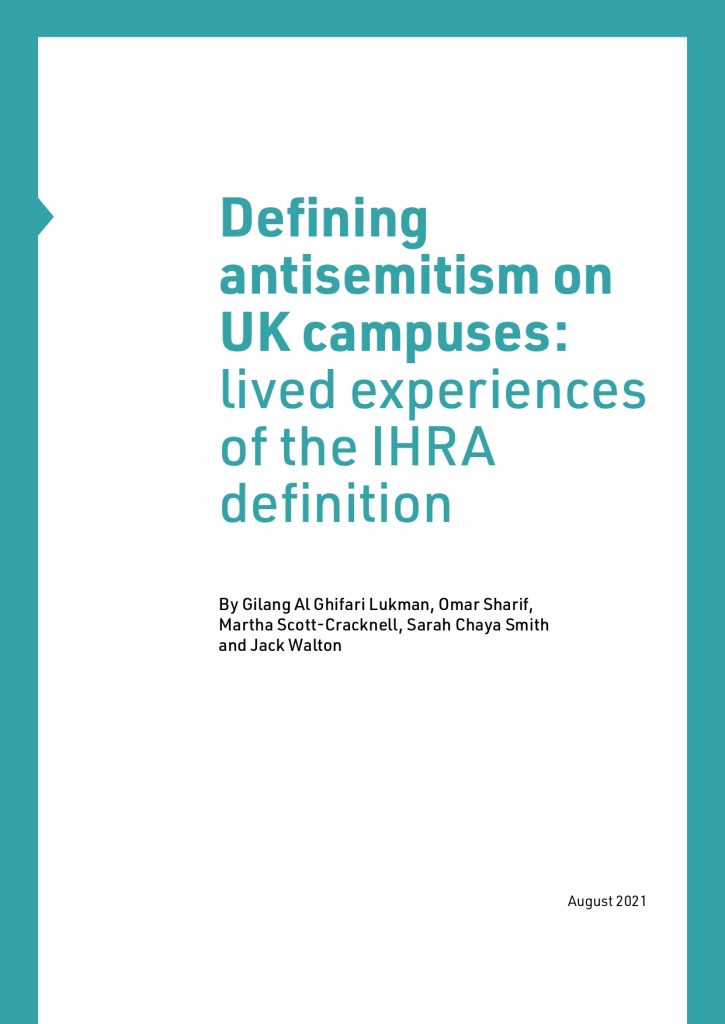By Gilang Al Ghifari Lukman, Jack Walton, Martha Scott-Cracknell, Omar Sharif, Sarah Chaya Smith
In this project, we explore the controversial issues surrounding the effects of the IHRA (International Holocaust Remembrance Alliance) working definition of antisemitism — in particular issues of freedom of speech and the different limitations on justice and equality that may arise when engaging in discourse around the Israel-Palestine conflict on university campuses. Furthermore, we focus on the current implementation of the IHRA definition and its future prospects. This includes assessing its exclusivity as a specific type of hate-crime, with its seemingly adopted status as a legally-binding ‘norm’ by governments and as an essential requirement for universities and academic institutions.
Debates concerning the IHRA working definition of antisemitism are commonly made in opinion pages and columns, with both sides presenting views with little focus on empirical evidence. There is a pressing need for an empirical assessment of how the definition, in practice, has impacted university campuses. Thus, we intend to conduct in-depth interviews to give voice to the diversity of experiences of those who are directly affected by the IHRA definition of antisemitism. This includes university students, members of faith-based or social issue university societies (such as Jewish Societies, Palestine Solidarity Societies and Interfaith Societies), university academics, university staff, community and faith leaders, NGOs and activists.
We are acutely aware that our research topic engages with issues of deep contention, and likewise, are appreciative of the high stakes this project presents for those participating. Nevertheless, such high stakes are precisely the reason we feel it is necessary to engage with this topic head-on and constructively. In doing so, we hope to open up greater possibilities for genuine critical debate surrounding the IHRA definition and the consequences of its ongoing implementation — inclusive of issues of freedom of speech among activists and its ‘chilling effects’, academic freedom to explore political ideas and its efficacy in addressing antisemitism.

